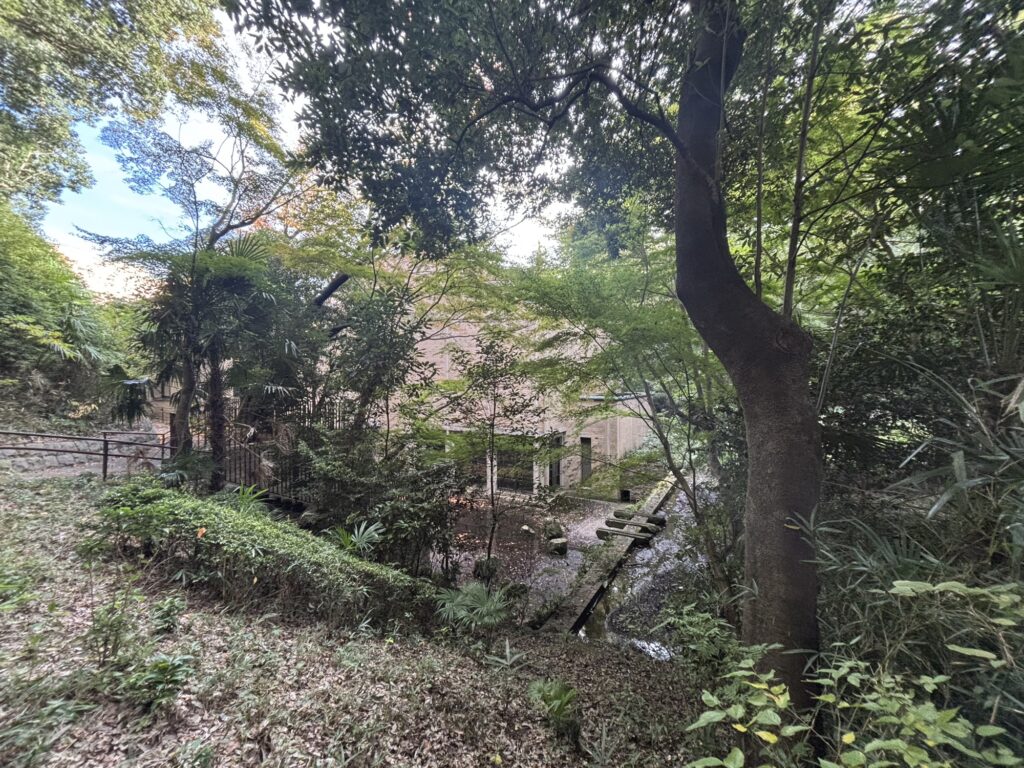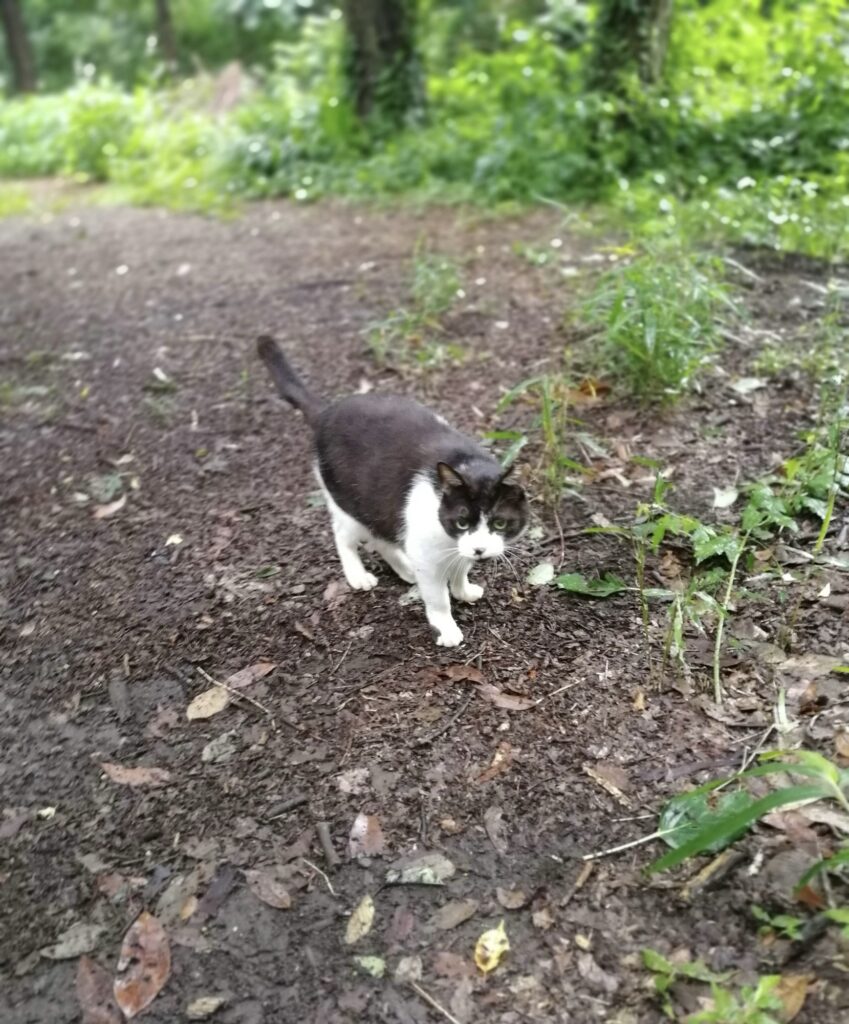【How to Relieve Clinic Stress and Regulate the Autonomic Nervous System】
Table of Contents
1. Why We Can’t Give a Quick Answer to “What Are You Doing This Weekend?”
When you’re dealing with a chronic illness, you often can’t give a simple answer to a regular question like, “What are you doing this weekend?”
Looking at Puchiko, she usually paints pictures, mostly motifs of her own organs, when asked what she does on her days off. That’s why she often has trouble answering. She knows what kind of response she’s likely to get if she tells people that, so she always brushes it off with a vague answer.
Due to the management of her renal disease, Interstitial Cystitis symptoms, and aerophagia during social meals, Puchiko spends her time differently than a healthy person. However, within that restrictive daily life is hidden her own wonderful way of spending her time to protect her mental health and creativity.
This time, the simple act of “walking in nature” that Puchiko discovered during a break between clinic visits should be the ultimate hint for cutting off clinic stress and regulating the autonomic nervous system.
2. The “Untraveled Path” Discovered Between Appointments
Managing Puchiko’s health requires visits not only to Nephrology but also to Urology and Gynecology.
This time, the Urology appointment for her Interstitial Cystitis finished unexpectedly fast (Puchiko’s condition was good, so it took only one minute! Even I was surprised and laughed). This left us with about two hours to kill before her Gynecology appointment at the next station. (By the way, the medical office assistant at this gynecology clinic is “princess,” a friend of Puchiko’s since high school).
With two hours of spare time, we decided to visit a park we often go to. The best way to cut off the stress of illness is a “walk in nature.” This is Puchiko’s favorite, and she even made sure to take nature walks during our trips abroad.
We usually stick to the established paths in this park, but this time, for some reason, we decided to ramble down a path.
Walking is the most simple and powerful therapy for releasing physical and mental tension and regulating the autonomic nervous system. Well, I’m no doctor, but that’s what I feel.
While walking, Puchiko suddenly said, “You know, Imaginary Friends are kind of like the lyrics to Nirvana’s ‘Lithium’.”
Walking down this path served as a switch that forced our minds to change focus. The hospital atmosphere, the consultation details, the anxiety about her illness—the negative thoughts that were swirling in her head instantly seemed to fade away in nature.

After finishing the Gynecology appointment and picking up her medicine, we went home. I felt like we had walked a lot, but it was only about 12,000 steps. Thanks to the right amount of fatigue, Puchiko was able to fall asleep easily that night, even though she had work the next day(Puchiko usually has trouble falling asleep on the night of her days off when she has to go to work the following day.)
3. The Forest Park: Where We Found Healing and Where the Cats Once Lived
The walk in the park we took between clinic appointments was certainly a wonderful reprieve for Puchiko.
It wasn’t just a way to kill time; it was the day after the incident with “The Toxic Friend” (【Toxic Friendship & Chronic Illness】The Arrogance of Talking About “Weak Bodies” in Front of a Sick Friend), and a mental haze had settled over Puchiko’s mind. As her ally, I struggled repeatedly to clear that haze, but I couldn’t and she would seem to shake it off only to start thinking again, causing the fog to return. While she was walking, the haze was still present, but it was thinner.
However, Puchiko has other parks like this, and they are much closer to home. I don’t mean “imaginary parks”—they are very real.
This forest-like park is also the place where Puchiko’s three beloved cats once lived.

One of my beloved cats, when he lived in a small forest.
Puchiko rescued the cats from this park and they spent time with us at home. The third cat, whom we took in just last month last year, sadly passed away from FIP, a highly fatal cat disease, after only three months. I remember Puchiko crying, even while trying to hold back at work. Two of the cats are still living with her now. We had one more cat besides these three, but I will save the story of her beloved cats for another time.
To return to the main subject: When living with a chronic illness or multiple conditions, it is inevitable to find yourself comparing your current self to your “healthy self” in the past, or even comparing yourself to others. However, by seeing the trees and grass where our former cats played in this park, Puchiko feels those happy memories of the past transform into mental energy for living in the present.
A walk in this “small forest” is not just exercise. It is our most precious “pilgrimage site” for washing away stress and quietly restoring mental health. It is why She will probably continue to live in this area, no matter how much money she earns or whatever else happens.
4. Illness Restricts the Body, But Never the Freedom of the Mind
The events of this single day—the stress of clinic visits, dealing with the aftermath of toxic relationships, the unexpected walk down a path,” and the nostalgic visit to the small forest that was once our cats’ home—gave Puchiko some crucial TIPs (Tools for Inner Peace).
Chronic illness imposes endless restrictions on the body, forcing us to dedicate time to symptom management and treatment. Yet, the most vital space in our lives—the freedom of the mind and heart—remains entirely ours.
The simple act of walking—whether it’s on a new road or in a park filled with dear memories—is the most accessible, non-pharmacological way to resolve clinic stress and restore the autonomic nervous system.
This is why Puchiko’s unique activities, such as her organ art and finding solace in nature, are so crucial. They are her own powerful tools for asserting that, while the body may be restricted, the spirit is unconditionally free.
For everyone else fighting the daily burdens of chronic illness, remember this: The fight is exhausting, but finding your own “forest park for the soul” is the key to protecting your mental health and finding peace in the present moment.
When you’re feeling low, or lost in worry, step outside and try a walk! This is the Ultimate Guide to Clinic Stress Relief and Finding Peace in Nature for Puchiko.